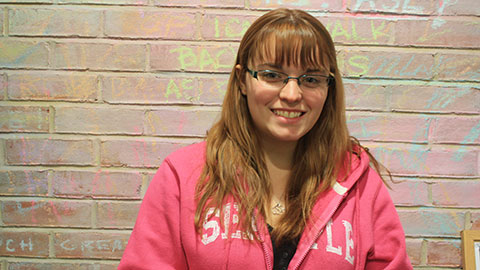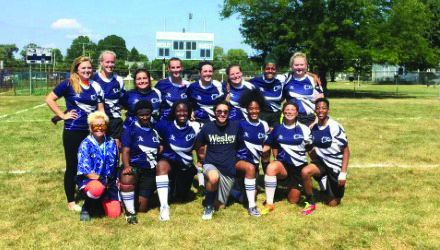By Melissa Boyd (Whetstone staff)
I recently went to a journalism conference in San Francisco with my adviser. A lot of people asked me what I really do at these conferences, so I’ll just explain now that mostly it’s a lot of extremely informative seminars that teach you how to produce a better newspaper.
One of the seminars I went to was titled, “Investigative Reporting 101,†where the speaker (another student journalist!) talked about how she gets to the bottom of stories, including how to get people to talk to you.
In many instances, the famous phrase “[insert name here] refused to comment,†occurs and, like the people who refuse to comment, as journalists, we hate the phrase, too. It means we couldn’t get someone to trust us enough to talk to us.
So why do people refuse to talk to us? We’re just people trying to serve our audience with the most accurate information we can possibly give.
Students at the conference said it has to do with trust and loyalty. People are afraid we’ll “misquote†them or it’ll make them “look bad.â€
Well, as I’ve seen it, the people who refuse to comment usually look worse because they refused to comment. It’s as if they’re hiding important information from the entire school.
As for misquotes, here’s a possibility – until you learn to trust me. Each source may ask me to read their quotes back to them. The source won’t be able to listen to or read the entire article, but he or she can hear their own quotes. And, if in the article, it’s written differently, you can email me and I’ll get to the bottom of it. After you learn to trust that I get it right, this won’t be necessary.
This is actually a controversial practice, but I think it’s smart to do for those who may be leery at first to speak to me or The Whetstone.
Want to know the real scoop, though?
It’s important to comment, not just coming from the “evil†journalist’s perspective.
When an article has an important figure in it, commenting, it adds perspective to the article.
For instance, a lot of the students at the conference were shocked we had a student talk to us after he was arrested for running through the campus nude.
Well, to be honest, he was smart by talking to us.
If he hadn’t talked, the story might have gone like this: police report, other students commenting, administration, police comments, etc. There would have been no “this is why I did it†or “I didn’t know I was doing it.â€
There was one girl in that seminar that had had a hazing conflict on her campus with her athletic department. She went to the soccer field (the alleged “hazersâ€) every day and just listened to their day-to-day talk.
As the soccer field is open to all students, this is ethically and legally fine for a journalist. If a student can be there, so can we.
After the soccer players started to get to know her, and understand her true purpose, they one-by-one started opening up. She eventually got the whole scoop and more than her editor could have ever hoped for.
The soccer players’ rewards for speaking up?
Readers across the entire campus understood their points of view. They understood not only what happened, but how it happened and why.
I loved her dedication, as a journalist, and I loved their willingness to finally open up.
It takes a lot of courage for a person to talk to a newspaper, student-run or not. We’re peers, but people don’t see us that way when we’re holding the pen and notepad.
As a journalist, I respect each of my sources, and I credit their courage to speak to me and enlighten me with the information they have to provide so that I can not only do my job with less hassle, but that all of our readers know exactly what happened and why.
Have I ever had someone refuse to speak?
Absolutely, last semester I had quite a few people refuse to speak to me.
Do I understand their refusal to speak?
Yes, mostly – I get that it’s scary.
However, it’s even scarier to have the story without your perspective.
So speak up. I promise I won’t bite.






